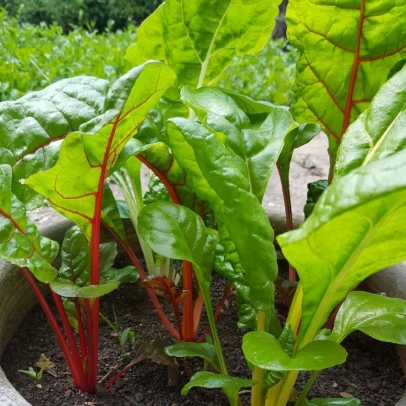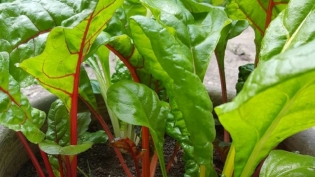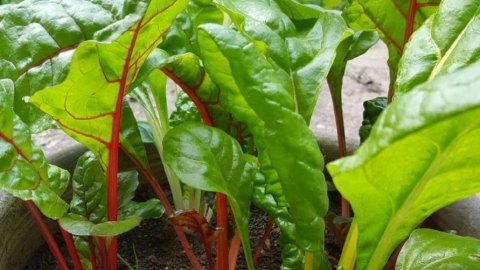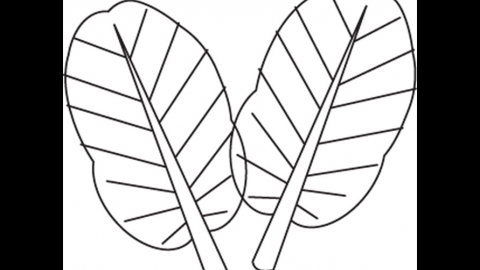Growing Chard
Chard, a versatile leafy green in the same family as the beet, is hardy to 15 degrees. It can be direct seeded two weeks before the last frost date or go into the ground as a plant right after the danger of frost has passed (April 15 in zone 7B). Proper spacing is critical for good air circulation, a special concern in our warm, humid south; plant seedlings 12” apart.
Each chard “seed” is actually a small, dried fruit which contains multiple seeds that germinate in clusters. Be sure to clip off the extra plants instead of pulling them up—otherwise, you’ll disturb the roots of the seedling you want to keep.
When direct seeding before frost, avoid red-stemmed varieties. They can be triggered to bolt (flower and go to seed) when exposed to a freeze right before temperatures begin to warm. White-stemmed varieties such as Argentata, Lucullus, or Fordhook Giant are much less prone to bolt and are more heat and cold tolerant than the more popular and colorful rainbow chard (Bright Lights, 5-color Silver Beet). On the other hand, the gold, yellow, orange, and magenta ribs of rainbow chard make beautiful additions to ornamental borders. Another variety to consider is Perpetual Spinach (also called leaf beet), which tastes a little more like spinach and responds to frequent harvests by producing copious amounts of new leaves.
Chard can be planted in either full sun or partial shade. The plants may wane in our hot Southern summers but bounce back nicely in the fall. Although chard reaches maturity 50-60 days after germination, the leaves also may be harvested at the baby stage (2”-4”). Southern Exposure Seed Exchange carries seeds of each color/type: www.southernexposure.com









